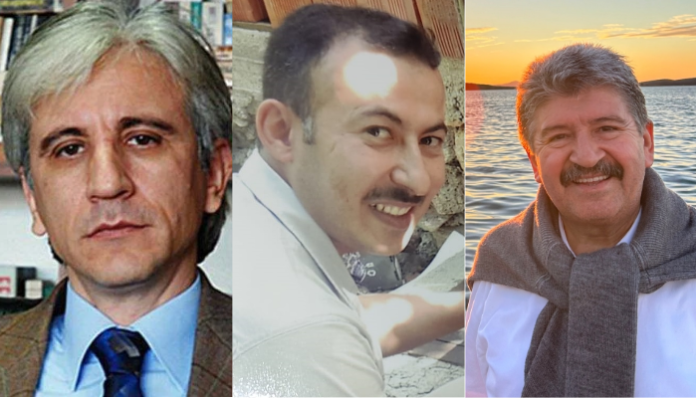The European Court of Human Rights (ECtHR) has faulted Turkey in two new rulings over the arrest and pretrial detention of 450 people following a failed coup in Turkey in 2016 due to their alleged links to the faith-based Gülen movement, finding an absence of sufficient grounds for their detention, Turkish Minute reported on Tuesday.
The Strasbourg court announced two separate rulings in the cases Taş and others v. Türkiye, and Deniz and others v. Türkiye on Tuesday. The court combined the applications of 213 people in the Taş case, while the Deniz case included the applications of 237 others with similar subject matter.
The applications mainly concerned the arrest and pretrial detention of the applicants in the aftermath of the coup attempt on July 15, 2016 on suspicion of membership in an alleged terrorist organization, referring to the Gülen movement, accused by the Turkish government of masterminding the failed coup and labeled as a terrorist organization.
The movement, inspired by the views of the late Turkish Islamic scholar Fethullah Gülen, denies the accusations.
The applicants, according to court documents, were charged with membership in a terrorist organization based on possession of Gülen-linked publications, financial support for the movement or its associated institutions, and/or their employment by and/or membership in organizations considered by the Turkish government to be linked to the Gülen movement.
In addition, witness statements indicating ties to the movement, social media posts, attending or holding religious meetings, communication with senior executives of the Gülen movement, facilitating communication between Gülen members, staying in Gülen-linked houses and carrying out various other activities on the alleged orders of the movement were also used by the Turkish courts as criminal evidence against the applicants.
The rights court ruled that Turkey violated Article 5 of the European Convention on Human Rights based on the absence of sufficient grounds for ordering and keeping the applicants in pretrial detention in the cases of all 450 applicants in both cases.
The court ruled that Turkey pay each of 450 of the applicants 3,000 euros in non-pecuniary damages as well as for costs and expenses.
Former teacher tortured in police custody among the applicants
Among the applicants in the two cases were Şahabettin Harput, a former governor of the western province of Bursa; Ömer Altıparmak, former head of police intelligence department; Lokman Kırcılı, the former deputy head of the Ankara police department; Manisa Celal Bayar University (CBÜ) former rector Prof. Dr. Mehmet Pakdemirli; former Boydak Chairman Hacı Boydak; Ahmet Küçükbay, head of Orkide Oil, a large company producing vegetable oil; Enver Altaylı, an academic, writer and former secret agent for Turkey’s National Intelligence Organization (MİT); İlhan İşbilen, a former lawmaker from the ruling Justice and Development Party (AKP); Gültekin Avcı, a former prosecutor and columnist; journalist Ahmet Memiş; and Eyüp Birinci, a former teacher.
Birinci was arrested in July 2016 and was sentenced to almost nine years in prison on terrorism charges due to his alleged Gülen links. He was released in April 2022 after serving his sentence.
The teacher’s claims that he had been sexually assaulted, beaten and insulted in police custody at the Antalya Police Station, where he was held shortly after the coup attempt led to a trial in which three police officers and a doctor are accused of involvement in torture.
According to the indictment, Birinci fainted from the torture and was taken to a hospital where it was determined that he was experiencing internal bleeding. His colon was ruptured from torture inflicted with a police baton.
In a landmark decision in May 2021, Turkey’s Constitutional Court ruled that Birinci was tortured in detention and that his rights were violated. The court ruled that Birinci be paid 40,000 Turkish lira in compensation for the acts of torture he suffered in police custody.
Allegations of torture and mistreatment have become worryingly common in Turkey following the coup attempt, when thousands of people were detained and arrested on bogus terrorism or coup charges.
Turkey faulted in 64 post-coup applications
Tuesday’s rulings are one of the many such rulings made by the court over the past years against Turkey due to its violations of the rights of people with alleged links to the Gülen movement who were prosecuted in the aftermath of the coup attempt.
With the latest decision, the ECtHR has found Turkey to have violated the rights of a total of 3,182 people in 64 different applications related to the post-coup rights violations. Turkey has been ordered to pay a total of 12,563,538 euros in non-pecuniary damages and expenses in these cases.
Despite the ECtHR decisions, the Turkish government is continuing its crackdown on real and alleged followers of the Gülen movement.
In the largest targeting of alleged Gülen followers since the death of the 83-year-old scholar in the US on October 20, Turkish police detained 459 people across 66 provinces on terrorism accusations over alleged links to the movement.
Interior Minister Ali Yerlikaya said there would be “no slackening” in the fight against the movement following the death of Gülen, echoing a similar promise made by President Recep Tayyip Erdoğan and other government officials following Gülen’s passing.















